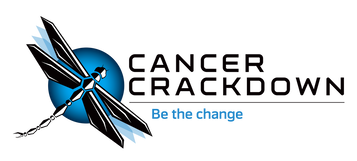|
Niacin & Cancer
Tell your doctor about other medications and supplements you are on before using niacin. Vitamins not only help your body function properly and provide nutrients necessary for health, but they may also help combat illness, including cancer. Niacin is one of the B vitamins that has been shown to provide multiple health benefits. It will not cure cancer, but it may be a helpful supplement in fighting the disease. Before using the supplement, talk with your doctor to see if this is a safe and appropriate substance for you to consume. Niacin Niacin, also known as vitamin B3, helps the body create energy from food like any other B vitamin, but it also aids in making sex and stress hormones. This vitamin also helps improve circulation and lower cholesterol levels, says the University of Maryland Medical Center. Most people get enough niacin through diet alone, UMMC continues, and deficiencies of this vitamin are rare in the United States. When a deficiency is present, alcoholism is the most common cause. Effects of Niacin on Cancer According to a 2009 study by Maiese and associates, published in “Molecules,” a form of niacin called nicotinamide may help control inflammatory cell reactions, protect against oxidative stress and reduce cancer progression. More research needs to be done on nicotinamide’s effect on cells, but its effects appear promising against cancer and other diseases. The Linus Pauling Institute adds that niacin influences cell response to DNA damage, which is a contributing factor to the development of cancer. Talk with your doctor about the possible benefits of niacin on cancer, and whether it is appropriate for you to take. Dosing There are different versions of niacin supplements: niacinamide, niacin and inositol hexaniacinate. Different formulations may be more effective than others, but some may cause different side effects. Regardless of which formulation you choose, using more than 100 mg daily can cause liver function abnormalities, so it is best to get regular liver function tests if you are consuming supplements at that level, according to UMMC. Males and females 19 years old and over need 16 and 14 mg of niacin a day, respectively; pregnant and breast-feeding women require slightly more, 18 and 17 mg daily. Talk with your doctor about a safe dosage of niacin supplements for you if you are planning on using these products. Considerations Niacin is not meant to be a substitute for any cancer treatments to which you have been prescribed; do not stop your existing treatments. If you are currently on cancer medication, even vitamins may interact with certain cancer drugs. Before using niacin, talk with your treatment team about whether it is safe to add niacin to your current regimen. Do not take more than the recommended amount of niacin, as this can cause adverse side effects. Credits: Aug 13, 2011 | By Jaime Herndon
0 Comments
Leave a Reply. |
|
Thank you to our supporters
Copyright © 2018 Cancer Crackdown. All rights reserved. | Users should note that this site is not a medical site and medical advice is neither given or implied by its administrators and does not replace the advice from an informed physician or health care provider familiar with the products or treatments discussed on this site. Individual results may vary.

 RSS Feed
RSS Feed
